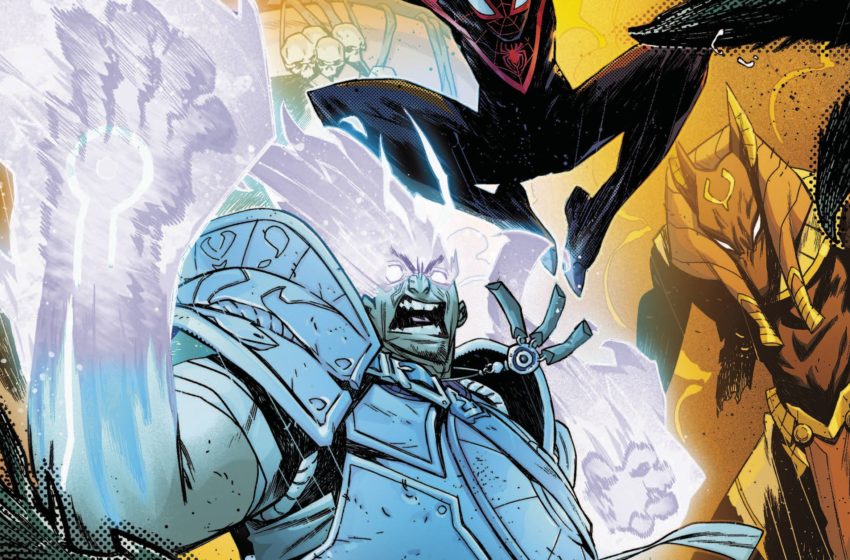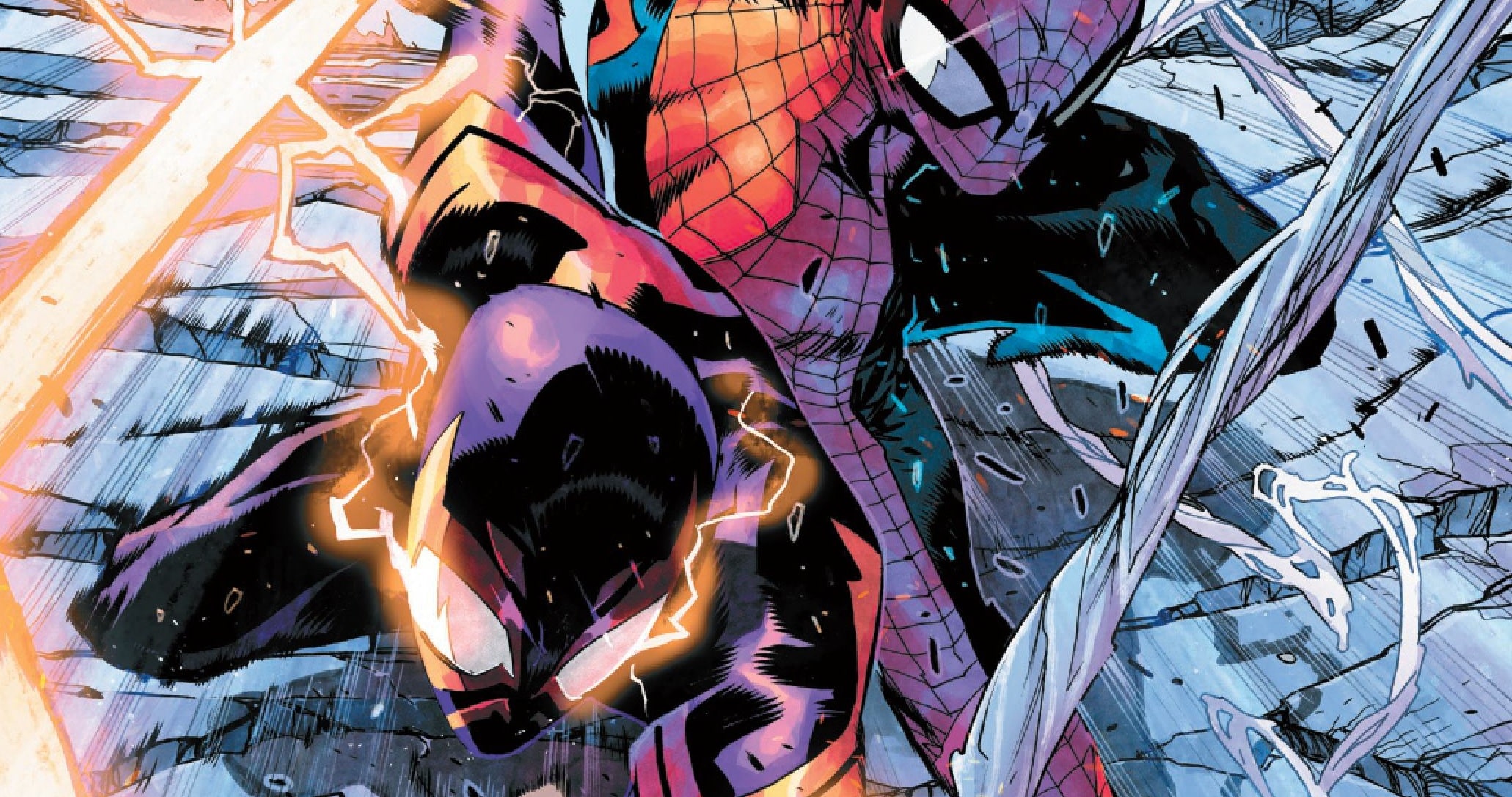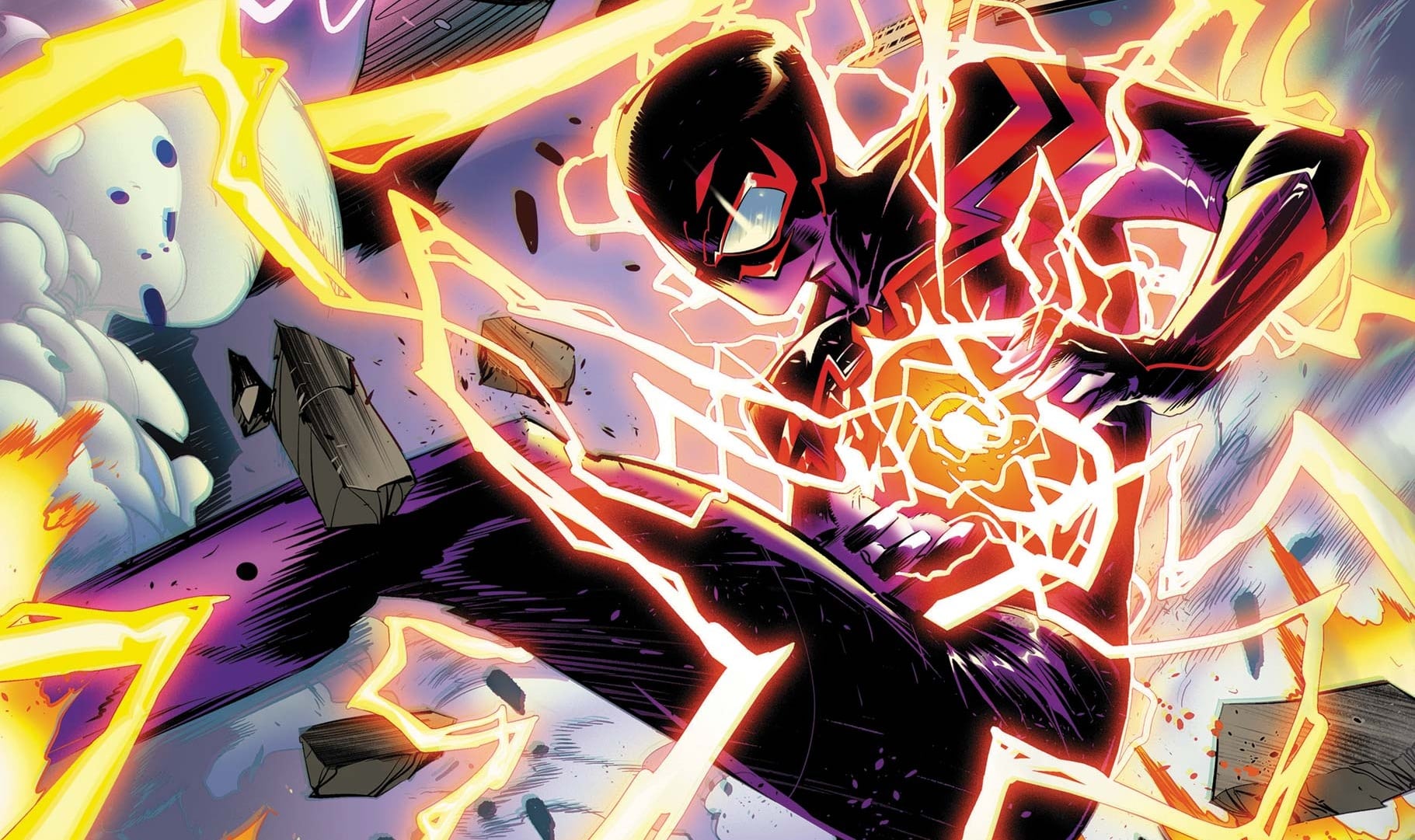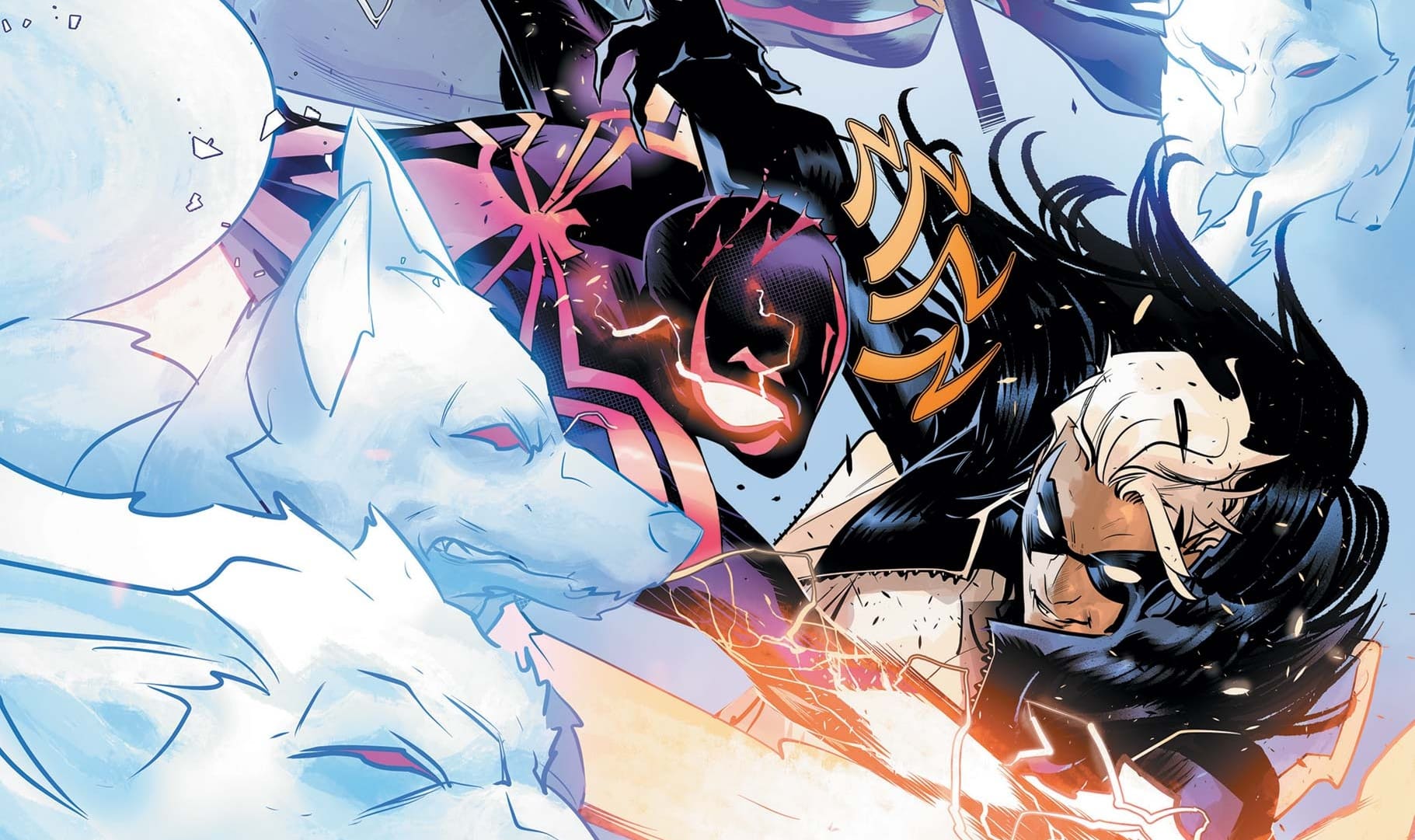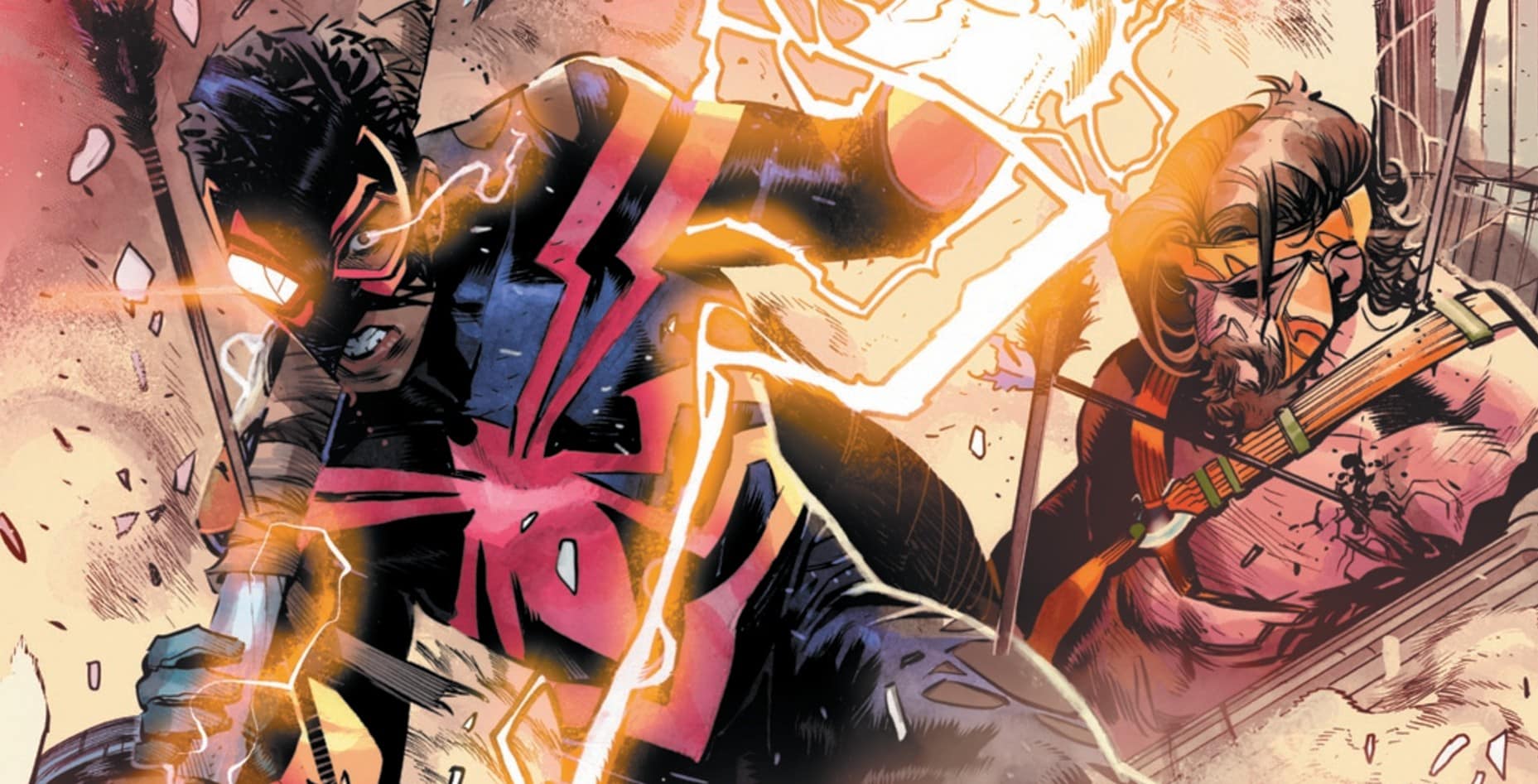Miles Morales and Amulet team up in the latest installment of Infinite Destinies in Miles Morales: Spider-Man Annual #1. Written by Saladin Ahmed, art by Luca Maresca, colors by Fernando Sifuentes, and letters by Cory Petit.
[Ed. note: A previous version of this article ran with misinformation about Ahmed’s background. This has been corrected.]
I’m Black. Very Black. 7th Ward, Morehouse Black. Undeniably Black.
And yet.
Blackness as a range of skin tones, a range of interconnected cultures can’t be distilled into one or two experiences. Nor should it.
I am not Lebanese. I’m not sure if I’ve ever had a conversation about Lebanese culture. I wouldn’t know where to start or where to end. But I understand Blackness and the way it’s often ill-represented.
It doesn’t feel natural. It doesn’t flow freely.
It feels like this comic.
Spider-Man Annual is a misleading title, as this isn’t really a Spider-Man comic; this is a (re)introduction to Amulet, the New Jersey-based Lebanese-American hero who takes the reins in this Infinite Destinies tie-in.
The book itself is…fine. Miles goes on patrol in Red Hook for no apparent reason other than plot. A monster appears. Amulet, who (along with his grandmother) can feel the presence of a certain subset of monsters, appears. Fights happen. Artifacts that host the spirit of evil monsters are destroyed. Hilarity ensues. Kinda.
There’s a decent amount of exposition here, as Amulet explains the background of the monsters he’s connected to. Everything is done with workman-like efficiency. You leave the comic with a good idea of what Amulet can do. You don’t, however, really get a good idea of who he is. His personality is bland, uninteresting, inoffensive. Maybe that’s on purpose; maybe that’s the problem.
Saladin Ahmed is part Lebanese. That matters because he’s invested in doing the character Justice. (Also, for full transparency, I didn’t know he was Lebanese and mistakenly wrote a copy of this review with that assumption. I was wrong, and I want to own up to my mistaken assumption as loudly as that mistake was.) In order for him to do the character justice, he attempts two things: first, shouting out cultural cues to give the character an air of authenticity, and second, not pushing the character in any remotely challenging positions or giving him anything resembling an interesting personality. It’s the same thing he does with Miles, who will shoot off a random Spanish phrase every few panels to remind you he’s half Puerto Rican. The cues, well-intended as they may be, feel forced and inauthentic, and the characters feel hampered by a lack of desire to challenge them.
This is not representation done well, even if it is well-intended.
While not the biggest fan of Children of the Atom, I appreciated how Vita wasn’t afraid to make teen characters assholes. Because teens *are* assholes. Not bad. Not stupid or foolish. But unsure and headstrong and flippant and all kinds of things interesting and not always flattering.
But they do feel authentic. And this, unfortunately, does not. Not because of cultural missteps (I have no context to judge), but because personalities are missing, and thus those cultural cues feel all the more forced, if misplaced.
That said, representation matters, even if it’s imperfect. I’m happy Amulet exists. I’m happy this comic exists. And I hope the Lebanese kid reading this will be inspired to do better than this.
If that’s the case, then this comic was well worth it.
(Side note: the Jed MacKay-penned short story after this starring Nighthawk, aka Bruce Wayne with less money, more melanin, and the “I’m an asshole” knob turned allllll the way up, is also…fine. There’s something to be said about him not being able to tell the difference between Falcon and Nick Fury that reads more than a little unbelievable. His plan – sneak up on someone bonded with an Infinity Stone in a back alley – seems silly. But, for what it is, the short is effective, if not at all memorable. Nighthawk, because of all his similarities to the guy from Gotham, really deserves a character-defining run to make him more than just an analogue. This ain’t it. But I digress.)
[Ed. note: The original version of this article included the below section, which has been changed in the body of the piece but retained for transparency.]
Saladin Ahmed is not Lebanese. I have no idea how much he knows about the culture or the people. But I do know he’s aware he’s not Lebanese, in the same way he’s aware he’s not Afro-Latino. And in order for him to do the character justice, he attempts two things: first, shouting out cultural cues to give the character an air of authenticity, and second, not pushing the character in any remotely challenging positions or giving him anything resembling an interesting personality. It’s the same thing he does with Miles, who will shoot off a random Spanish phrase every few panels to remind you he’s half Puerto Rican. The cues feel forced and inauthentic, and the characters feel hampered by a lack of desire to challenge them.
A proud New Orleanian living in the District of Columbia, Jude Jones is a professional thinker, amateur photographer, burgeoning runner and lover of Black culture, love and life. Magneto and Cyclops (and Killmonger) were right. Learn more about Jude at SaintJudeJones.com.

